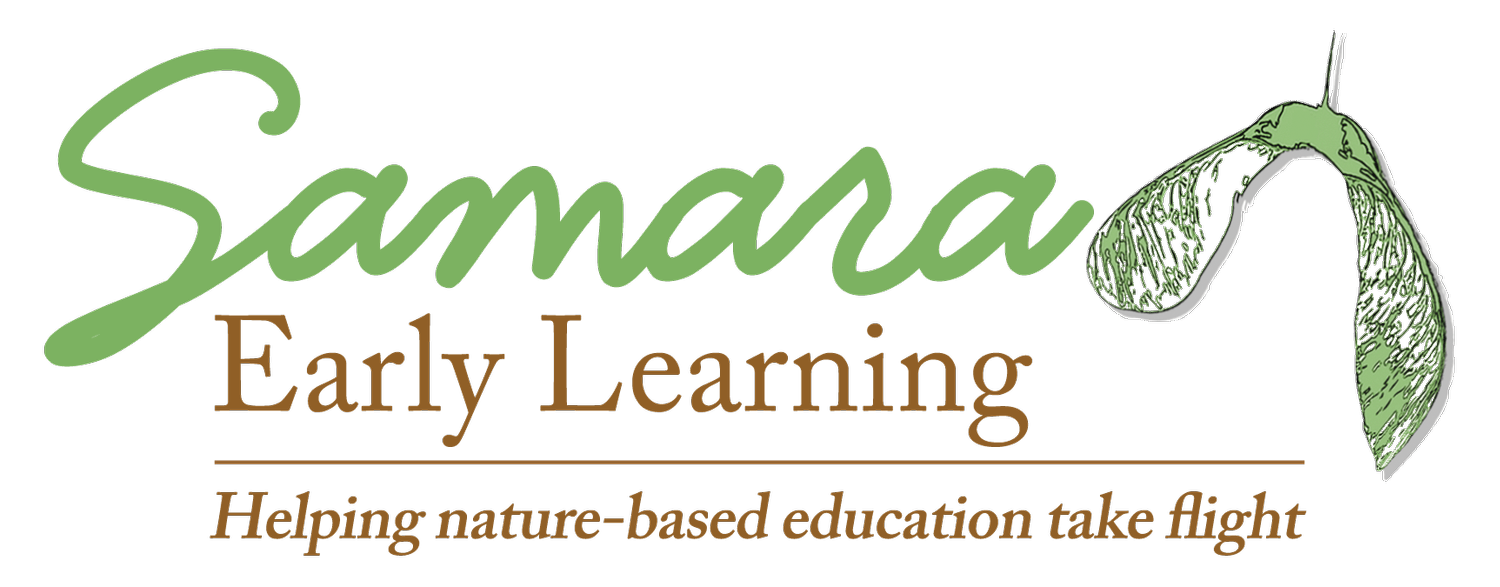Something More Meaningful Than "Be Careful"
This episode of the Mindful Turtle Podcast originally aired November 24, 2024. To receive podcast updates and other nature-based early childhood education news, subscribe to Samara Early Learning’s weekly newsletter written by Dr. Rachel A. Larimore.
Listen to this episode of the Mindful Turtle now:
This week’s invitation is to focus on replacing “be careful” (or whatever filler phrase you discovered about yourself last week) with an alternative phrase.
Let's briefly revisit why phrases like "be careful" or "watch out" are problematic. Using these types of phrases creates an illusion of safety, giving the impression that adults have done their part to keep children safe. However, in nature-based programs, we want to teach children how to assess risk and navigate their environment independently.
When we choose to speak, our language should encourage children to:
Take notice of their environment
Provide clear suggestions of what TO do, rather than what NOT to do
Be aware of how they're feeling in their body
Some possible alternative phrases include "noticing phrases" that draw attention to environmental cues, "problem-solving phrases" that offer constructive suggestions, and open-ended questions like "What is your plan?" to gauge their thinking.
Changing our own habits is challenging, but we can catch ourselves when we're about to use unhelpful phrases. Pausing to consider more constructive language related to noticing or problem-solving can be helpful. If unsure, silence may be the best option, as it allows children to continue exploring safely.
The key is fostering children's independence and risk assessment skills, rather than creating a false sense of security. With patience and practice, we can develop more mindful interactions to support children's growth.

